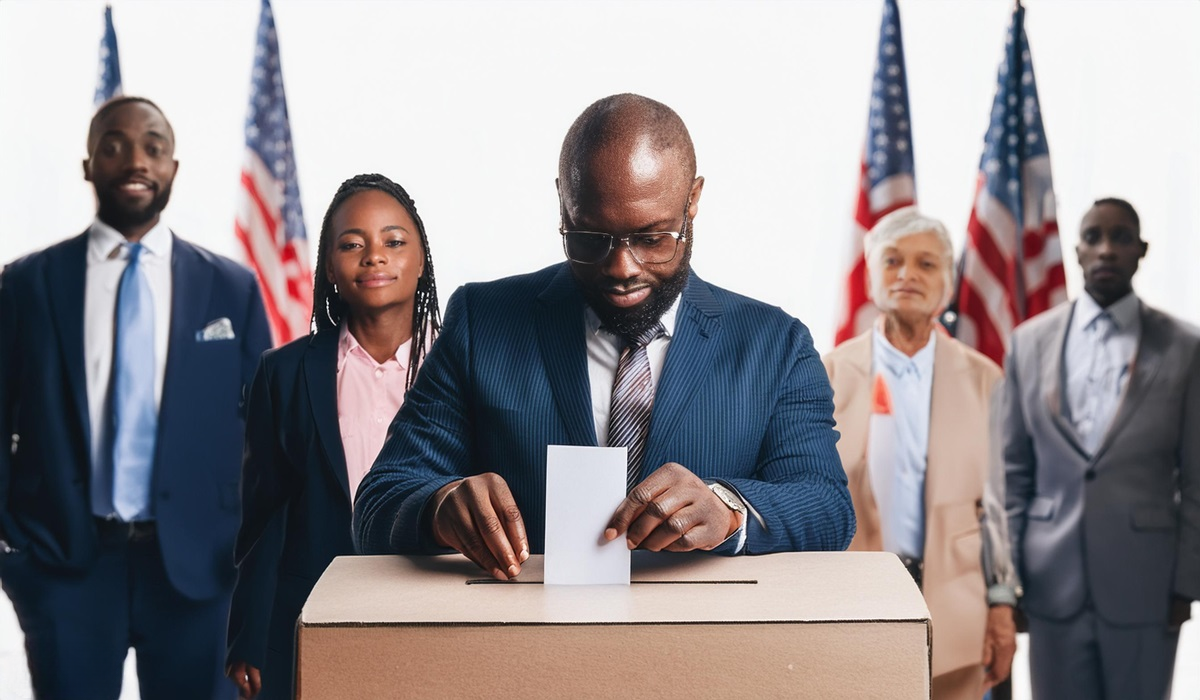In recent years, there has been a noticeable shift in the political landscape as more prominent Black Americans openly support Donald Trump. This change is rooted in a complex interplay of policies, historical context, and political disenchantment. While the mainstream narrative often overlooks this support, it is crucial to understand the underlying reasons and the policies that have contributed to this phenomenon.
Trump’s presidency was marked by several policies that, despite his often controversial rhetoric, had a positive impact on Black Americans. One of the most significant initiatives was his administration’s commitment to Historically Black Colleges and Universities (HBCUs). In 2019, he signed legislation that provided permanent funding of $255 million annually to these institutions. This move was widely praised within the Black academic community and was seen as a significant step toward supporting Black education and empowerment.
HBCUs have historically been underfunded and overlooked by previous administrations, which only offered nominal funding or temporary solutions. This permanent annual funding guaranteed financial stability, allowing HBCUs to plan long-term improvements in infrastructure, faculty recruitment, and student services. For many in the Black community, this act underscored a genuine commitment to educational equality and economic opportunity, areas where HBCUs play a crucial role.
Trump’s economic policies also resonated with some Black Americans. His administration’s focus on economic growth led to historically low unemployment rates for Black Americans before the COVID-19 pandemic. The implementation of Opportunity Zones, aimed at spurring economic development in distressed communities, also attracted support. These zones were intended to stimulate investment and create jobs in economically disadvantaged areas, many of which are predominantly Black.
The historical relationship between the Black community and the Democratic Party is complex. While the Democratic Party is often seen as the champion of civil rights, it is also true that some of the harshest laws impacting Black Americans were enacted under Democratic leadership. For instance, the 1994 Crime Bill, signed by President Bill Clinton, led to mass incarceration that disproportionately affected Black communities. This law has been a point of contention and a source of disillusionment among Black voters.
Moreover, the perception that Democrats only engage with the Black community during election cycles has led to growing skepticism. Many Black Americans feel that their support is taken for granted and that promises made during campaigns often go unfulfilled. This sentiment has fueled a search for alternative political allies who might offer more tangible and consistent benefits.
When examining the political ideologies of both major parties, many Black Americans argue that beyond the surface-level differences, there is little to distinguish Democrats from Republicans in terms of substantive policy changes that directly benefit their communities. This realization has led to an openness to consider candidates based on their actions rather than party affiliation.
Trump’s transactional approach to politics is one of the aspects that some Black Americans appreciate. He is perceived as a leader who, despite his brashness, is clear and direct about his positions and intentions. This clarity is valued over the often ambiguous and politically correct rhetoric of traditional politicians.
His stance on law and order has been a double-edged sword. While his calls for increased policing and tougher penalties have been criticized as detrimental to Black communities, his administration’s efforts in criminal justice reform, such as the First Step Act, which aimed to reduce recidivism and ease sentencing laws, were seen as positive steps.
On social issues, particularly those related to gender and religion, his positions have found resonance among faith-based Black Americans. Many within this demographic are conservative on issues such as same-sex marriage and gender identifciation, aligning more closely with Republican values. This ideological alignment has contributed to a shift in political support.
The increasing number of prominent Black Americans supporting Trump is a testament to this shift. Athletes, musicians, and actors have publicly endorsed him, breaking the stereotype that Black Americans overwhelmingly support Democratic candidates. Figures like Kanye West, 50 Cent and Ice Cube have either endorsed or worked with him, emphasizing policy over party loyalty.
It is essential to acknowledge that no political party has a monopoly on good policies or governance. Both Democrats and Republicans have enacted laws and policies that have both benefited and harmed Black communities. The key takeaway is that Black Americans are increasingly evaluating political candidates based on their actions and the tangible benefits they bring to their communities rather than adhering strictly to party lines.
Trump’s transactional nature and his clear stance on issues have appealed to a segment of Black voters who value straightforwardness and tangible results. This shift challenges the traditional political dynamics and underscores the importance of addressing the specific needs and concerns of Black communities.
The increasing support for Trump among prominent Black Americans is rooted in a combination of his policies, the historical context of political disenchantment, and a desire for clear and direct leadership. While his rhetoric and some of his policies remain controversial, his administration’s actions in areas like HBCU funding, economic development, and will to cut out red tape, have resonated with many Black Americans. The evolving political landscape highlights the need for both major parties to genuinely engage with Black communities and address their concerns beyond election cycles. As Black Americans continue to navigate the complex terrain of American politics, their support will likely be driven by a pragmatic assessment of which candidates and policies offer the most tangible benefits for their communities.









